Workshop 'Content and Effects of Contracts', 31 May-1 June 2013
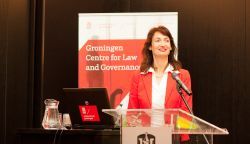
On Friday 31st May and Saturday 1st June 2013, an international conference on ‘Content and Effects of Contracts: the CESL in the European Multi-Level System of Governance’ took place at Hanze Sociëteit in Groningen. This event was organised by the Groningen Centre for Law and Governance (GCL) and the Endowed Chair Law and Governance, Prof Aurelia Colombi Ciacchi.
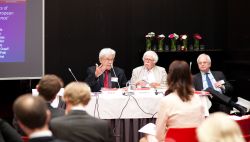
Some of Europe’s leading experts in national and European private law participated in the event and delivered papers. Introductory and welcoming remarks were given by Prof Colombi Ciacchi. The opening session was dedicated to a general assessment of the CESL in the European multi-level system of governance. Prof Norbert Reich (University of Bremen, visiting prof. University of Groningen) started the discussion by questioning the need of the CESL on the basis of an analysis of the EU proportionality principle. This was followed by a presentation from Prof Ewoud Hondius (University of Utrecht) who discussed the many advantages of a Common European Sales Law. Prof Oliver Remien (Julius-Maximilians-Universität Würzburg) then examined the origins and ambitions of the CESL, especially the chapter on ‘Effects’, and criticised the instrument.
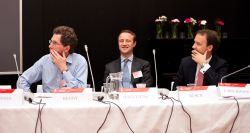
Prof James Devenney (University of Exeter) and Prof Mel Kenny (De Montfort University) discussed the multi-level realignment of European Sales Law, which Prof Matthias Haentjes followed up by presenting on the scope of application of the CESL. Prof Christoph Busch (EBS Law School) focussed on the gap-filling in the CESL and the role of national law in this regards. The final presentation of the first session was given by Prof Alex Geert Castermans (University of Leiden), who focussed on the business’s perspective on the CESL and contracts interpretation.
The second session focussed on specific provisions in Chapter 7 of the CESL. Prof Hugh Beale (University of Warwick) opened the session by giving an overview of the various sources of terms listed or referred to in Article 66 and discussing the question of obligations or duties that are not specifically agreed by the parties, with particular reference to Article 68. Prof Bart Krans (University of Groningen) also focussed on Article 66 and Article 68.
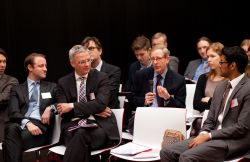
Dr Vanessa Mak (University of Tilburg) subsequently spoke on Article 67 and addressed the question whether the CESL’s references to trade usage in contract interpretation is a weakness. Bernd Seifert LL.M (Oldenburg Chamber of Industry and Commerce) examined Pre-contractual information under Article 69 of the CESL and concluded that the provision may prove to be a major obstacle for traders.

Prof Marco Loos (University of Amsterdam) focused on Article 70 CESL, pertaining to the incorporation of standard terms, and its functional equivalents in German and Dutch law. Ruben de Graaff (Leiden University) then addressed the duty to notify the other party of standard terms under Article 70 CESL, comparing it to Dutch private law (notably, Art. 232-234 BW). Prof Salvatore Patti (University of Rome I La Sapienza) provided an interpretation of Art. 70 CESL compared with pre- existing rules, especially the well-established Art. 1341 of the Italian Civil Code. Tobias Pinkel (University of Bremen) then presented on the effect of merger and non-reliance clauses in the CESL (Art. 72).
The second day of the session began with Dr Viola Heutger (The Hague University of Applied Sciences) providing a comparison of Art. 73-75 CESL, on the rules on the determination of price with the German Civil Code, the Dutch Civil Code, and the International Convention on the Sale of Goods. Prof Peter Rott (University of Copenhagen) focused on the rules on language under Art.76 and the issue of consumer certainty. Dr Franziska Weber (Erasmus University Rotterdam) presented on Art. 77 and contracts of indeterminate duration, making comparisons to German law. Dr Alain Ancery presented on Art. 78 and third party stipulation, with reflections on the Dutch and English perspective. The final presentation of the day was by Dr Charlotte Pavillon (University of Leiden) who gave concluding remarks on Chapter 7 CESL from the perspective of consumer protection.
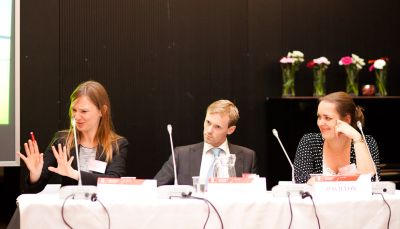
| Last modified: | 07 June 2019 10.36 a.m. |
